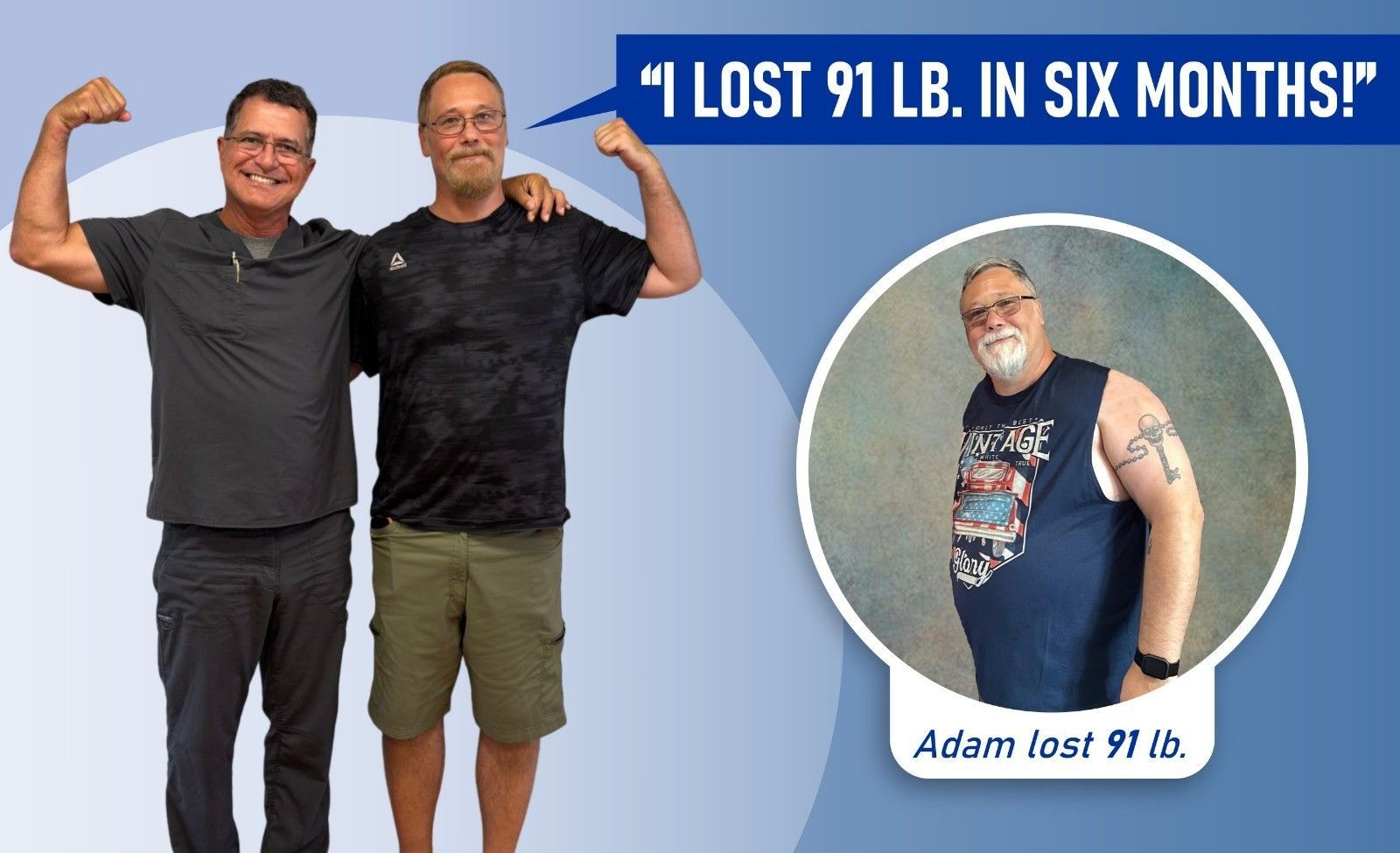Weight Loss Surgery in Jacksonville, Florida
Is Bariatric Surgery Right for Me?
The concept of weight loss seems deceptively simple when you put it on paper: lose more calories than you consume. However, for anyone who has actually tried to lose weight, you know it’s not so straightforward. Managing time to work out, planning healthy meals, resisting bad habits…It’s not so easy, but hard work and determination is all you need—right?
Yes, weight loss requires diet and exercise, but on their own, these traditional weight-loss solutions don’t always work for everyone, no matter how hard they work or how determined they are to reach their goals. At that point, weight-loss surgery may become a valid consideration, but how do you know if such a solution, like the Lap-Band® procedure, is right for your situation?

List of Services
-
You Have a Qualifying BMI or an Obesity-Related ConditionList Item 1
To determine if bariatric surgery is the right choice for you, consider your body mass index, or your BMI. This is an approximate measurement of your health, which is calculated based on your height and weight. For the average adult, the ideal BMI rests between 18.5 and 24.9, while 25 to 29.9 is considered overweight and 30 to 39.9 is considered obese.
For most bariatric procedures, a BMI of 40, which is considered morbidly obese, is required to be considered for the procedure. This is only partially true for the Lap-Band procedure, which has been approved for obese patients with a lower BMI—one of the many advantages the Lap-Band offers over other bariatric procedures.
To be considered for the Lap-Band, patients must have a BMI of 40 or a BMI of 30 and be suffering from an obesity-related condition that may be remedied or eased with a bariatric procedure. These conditions may include:
- Type 2 diabetes
- High blood pressure
- Coronary heart disease
- Sleep apnea
- Depression
- High LDL cholesterol
- Low HDL cholesterol
-
You’ve Been Unsuccessful with Diet and Exercise AloneList Item 2
Bariatric surgery isn’t a “quick fix” or the “easy way” to lose weight. That’s why candidates must have tried other weight-loss solutions, like traditional diet and exercise or prescribed medications. To qualify, patients need to have been unsuccessful with these methods, either in losing their desired weight or in keeping it off.
In addition, candidates must also demonstrate they are prepared to make the necessary lifestyle changes, including healthier eating and regular exercise. Weight doesn’t simply fall off after bariatric surgery—a switch to a healthier lifestyle is required to reach the desired result.
-
The Lap-Band Advantage
Not only has Lap-Band been approved for people with a BMI of 30 or higher, but it’s also the only bariatric surgery that can be adjusted or even removed entirely. The minimally invasive, non-malabsorptive procedure doesn’t involve any cutting or rerouting of the stomach and digestive tract. Instead, an inflatable band is placed around the top portion of the stomach. This band can be tightened or loosened by injecting saline through a port in the skin to adjust to changing patient needs, including pregnancy.
If you decide the Lap-Band surgery is the right weight-loss solution for you, the next step is finding a trusted surgeon to perform your procedure and guide your through your lifestyle changes afterward.
Dr. Michael Baptista specializes in weight-loss procedures, having performed thousands of surgeries over the years and understanding the importance of communication and support post-surgery. To learn more, or to schedule an appointment, visit us online.
Health Issues After Surgery Resources
Patient Success Stories







